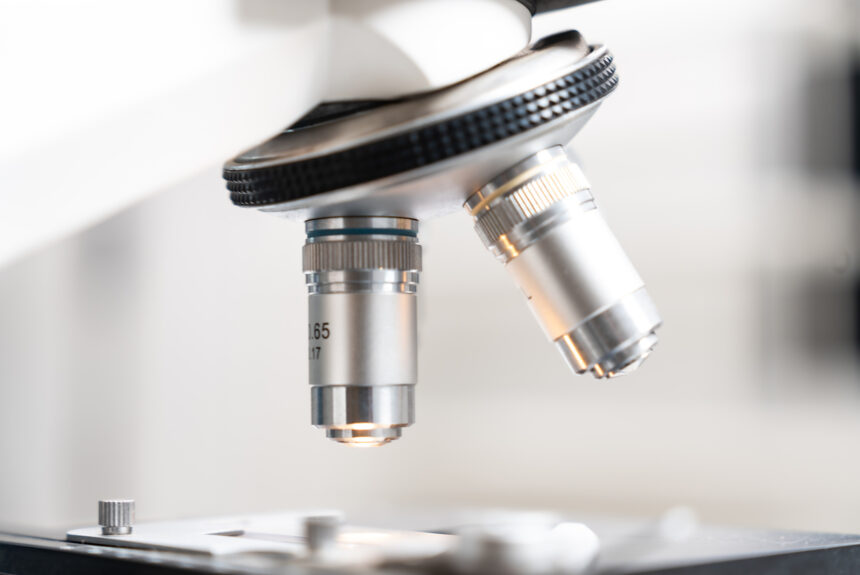Last week, the House Science and Technology passed a series of bills to bolster American research and development and energy innovation.
Here are the four bills:
Research and Development
Sponsored by committee Chairman Frank Lucas (R-OK) and Rep. Andrea Salinas (D-OR), The NSF and USDA Interagency Research Act (H.R. 8613) authorizes the National Science Foundation (NSF) and U.S. Department of Agriculture (USDA) to collaborate on research and development to advance agricultural innovation.
Specific research areas under this partnership include plant, animal, and microbial biology, advanced sensors and models of soil and plant processes, AI and machine learning for agriculture purposes, and precision agriculture.
Through an amendment introduced by Rep. Bonamici (D-OR), the bill also authorizes the agencies to study blockchain technology, which traces a product’s supply chain, including country of origin and growing practices. Walmart has employed blockchain technology which has allowed the food giant to trace the origin of the mangoes sold in U.S. stores within 2.2 seconds. Advancements in agricultural blockchain will allow farmers to verify sustainability and organic claims and give consumers confidence when shopping for food.
>>>READ: How FESI Can Help Advance Transformative Energy Technologies
The committee also advanced H.R. 8673, The Expanding Partnerships for Innovation and Competitiveness (EPIC) Act, sponsored by Reps. Haley Stevens (D-MI) and Jay Obernolte (R-CA). The EPIC Act will establish a nonprofit foundation at the National Institute of Standards and Technology (NIST), a non-regulatory authority housed in the Department of Commerce. While one of the lesser-known agencies, NIST plays a critical role in supporting American innovation by advancing measurement science, standards, and technology.
Currently, NIST is especially focused on AI and recently released its AI Risk Management Framework, which aims to improve transparency and trustworthiness in the rapidly developing field of AI. The work that NIST does in this area informs policymakers and other agencies on potential regulations for the industry. NIST’s work also impacts emerging energy technologies and has developed a testing standard to measure the performance of materials in direct air capture plants.
Modeled after similar foundations at other agencies, including FESI at the Department of Energy, The Foundation for Standards and Metrology will connect NIST to private sector experts and funding opportunities and support the expansion of the agency’s research facilities and infrastructure. Creating the foundation will reduce NIST’s dependence on federal appropriations cycles and encourage more public-private collaboration and partnerships that are primarily privately funded.
Energy Innovation
The committee passed H.R. 8665, the Supercritical Geothermal Research and Development Act, also sponsored by Reps. Lucas and Salinas. This bill directs the Department of Energy’s Frontier Observatory for Research in Geothermal Energy (FORGE) to award grants for and test supercritical geothermal technologies.
Supercritical geothermal goes deeper and reaches hotter temperatures than traditional geothermal technologies. After drilling nearly 2.5 miles underground to access hot dry rocks (700° F) companies pump water down a well to bring up super-hot steam that turns turbines and creates clean energy. In addition to producing higher-temperature steam, which has industrial heat applications, supercritical geothermal is not as geographically constrained as traditional geothermal.
>>>READ: New Map Shows Geothermal Energy’s Potential for Abundant, Clean Power
H.R. 8665 also encourages DOE and the Department of Interior to collaborate on data collection and analysis of where abundant geothermal resources are located. Recently, the non-profit Project InnerSpace developed a tool that found the potential for geothermal worldwide to be abundant.
The final piece of legislation the House Science Committee considered and advanced was H.R. 8674, the Milestones for Advanced Nuclear Fuel Act, sponsored by Rep. Brandon Williams (R-NY) and Rep. Eric Sorensen (D-IL).
Through several bills that were recently signed into law, including the Nuclear Fuel Security Act and the Russian uranium import ban, the federal government has allocated billions of dollars to bolster America’s supply of nuclear fuel. H.R. 8674 aims to ensure that taxpayer dollars are used responsibly and effectively by directing DOE to award milestone-based projects for domestic fuel. Under this agreement structure, several other federal agencies employ, including ARPA-E, award recipients receive full federal funding only when they complete designated milestones and checkpoints.
Under the bill, projects subject to this requirement include those related to uranium production, conversion, fabrication, enrichment, deconversion, and recycling.
The House Science and Technology Committee is a shining example of bipartisan policy making at work. These four bills will help to increase American competitiveness, accelerate innovation, and benefit the lives of consumers, businesses, and farmers.
The views and opinions expressed are those of the author’s and do not necessarily reflect the official policy or position of C3.
